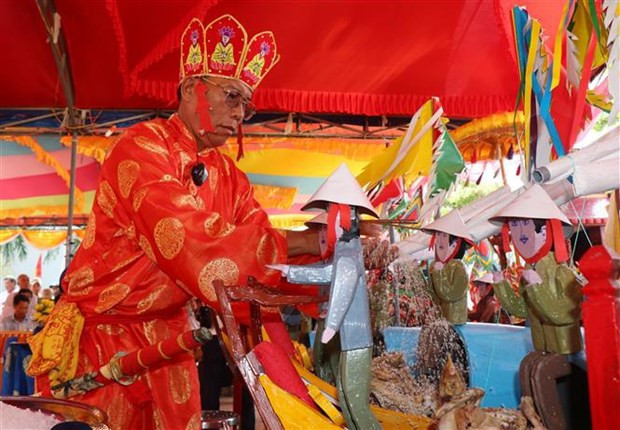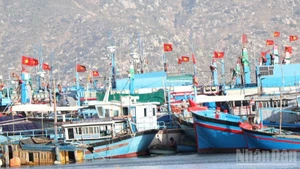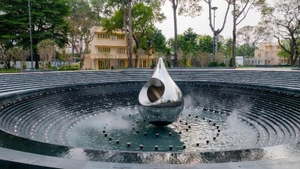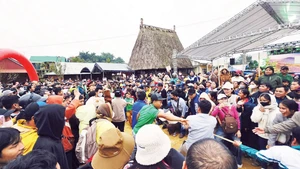The event is to pay tribute to the soldiers who sacrificed their lives over the centuries guarding the Hoang Sa (Paracel) and Truong Sa (Spratly).
It has been observed through over 400 years by communities on Ly Son island and many coastal areas in the province. It was recognised as a national intangible cultural heritage by the State in 2013.
During the rituals, paper boats with effigies of sailors are launched into the seas and respects are paid to the lost sailors’ symbolic tombs.
According to Vietnam’s feudal state history, the Hoang Sa Flotilla was set up in 17th century when the Nguyen Lords began their reign in the south of the country.
Thousands of sailors braved roaring waves and storms to survey sea routes, plant markers and erect steles affirming the national sovereignty over the Hoang Sa and Truong Sa. These areas were secured marine resources under the order of the Nguyen Lords. Their missions were full of danger, and many of them never returned to land.
Therefore, before the soldiers left for their missions, a feast was held for them, hence the beginning of the tradition.
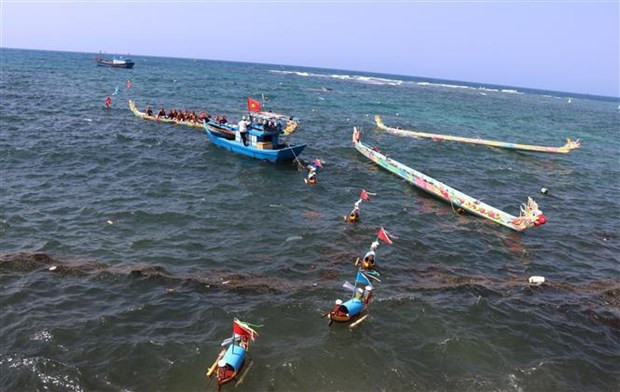 |
| Paper boats with effigies of sailors are launched into the seas and respects are paid to the lost sailors’ symbolic tombs.(Photo:VNA) |
The festival reflects Vietnam’s history of protecting the national sovereignty in the East Sea, especially over the Hoang Sa and Truong Sa.
After the commemoration on the day, the Tu Linh boat race was held to pray for a year of favourable weather and bumper catches ahead. The festival is called Tu Linh because the racing boats are decorated with symbolic shapes of the quartet of mythological creatures in Vietnam’s traditions and beliefs including the dragon, qilin, tortoise, and phoenix.
